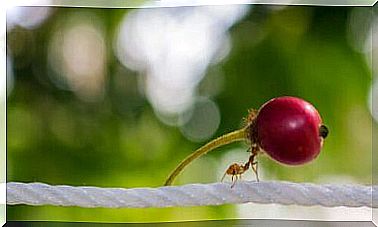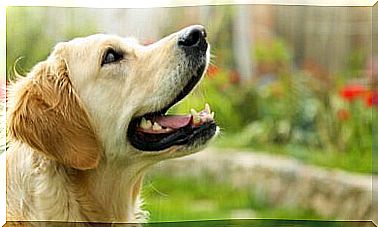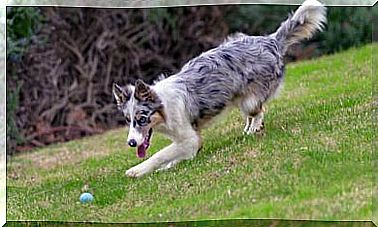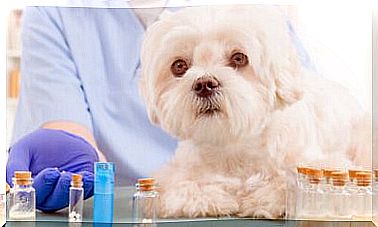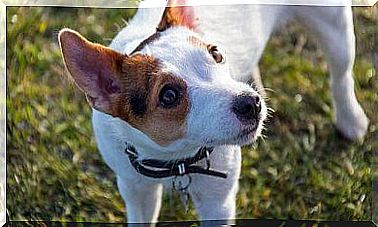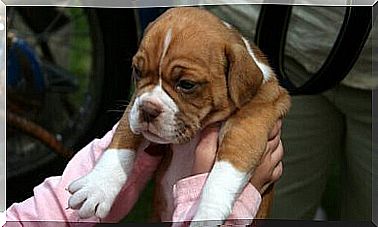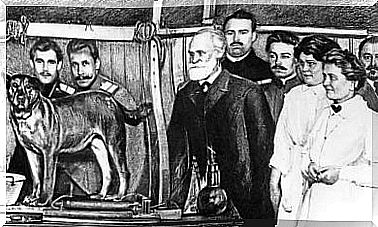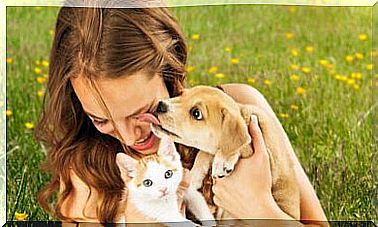How To Care For A Pet Post-op
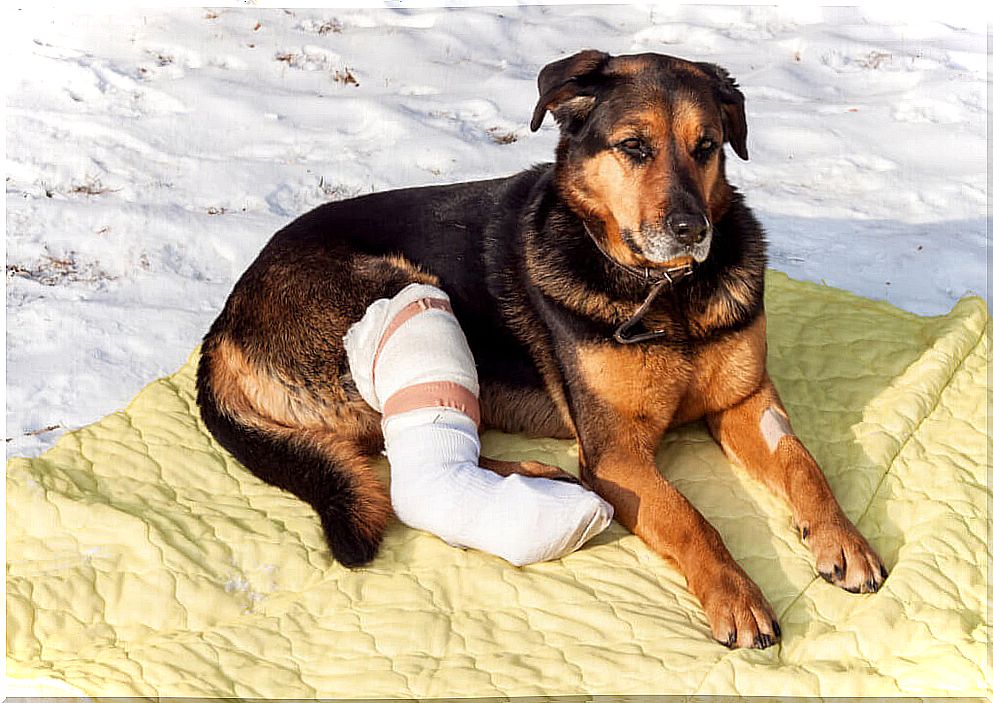
A very common question that guardians may have is how to care for a pet postoperatively. Like humans, animals feel uncomfortable after an operation.
In addition to not understanding the reason for the procedure, they may become frustrated for not being able to do the same activities every day. Therefore, it is advisable to follow a series of guidelines, listed below, to make your recovery more enjoyable.
Care a pet should receive after surgery
First, veterinarians can give you some instructions for caring for a pet after surgery. These guidelines allow you to monitor the animal’s progress, although they may vary depending on which animal is treated and the operation. Here we will show you some of them.
comfort above all
An indisputable aspect is that the animal should feel as comfortable as possible after the operation. For this, you can move his bed to the favorite corner of the house or where the room temperature is acclimatized, for example.
Likewise, it is recommended to keep children away to avoid stressing the animal. Another important aspect is to always administer the medications provided by the veterinarian at the proper time.
How to properly care for wounds?
Usually, the post-operative period lasts around 10-14 days. During this time, the wound must be kept clean and dry, which means that the dressings must be checked several times a day.
Also, when cleaning the wound, an antiseptic should be used, which is usually recommended by the veterinarian. Cleaning and disinfection can be done two to three times a day, depending on the evolution of the wound.
When checking the dressing and changing it, it is also good to observe the evolution of the wound. Any signs of infection, excessive inflammation, secretions or otherwise should be reported to the veterinarian immediately.
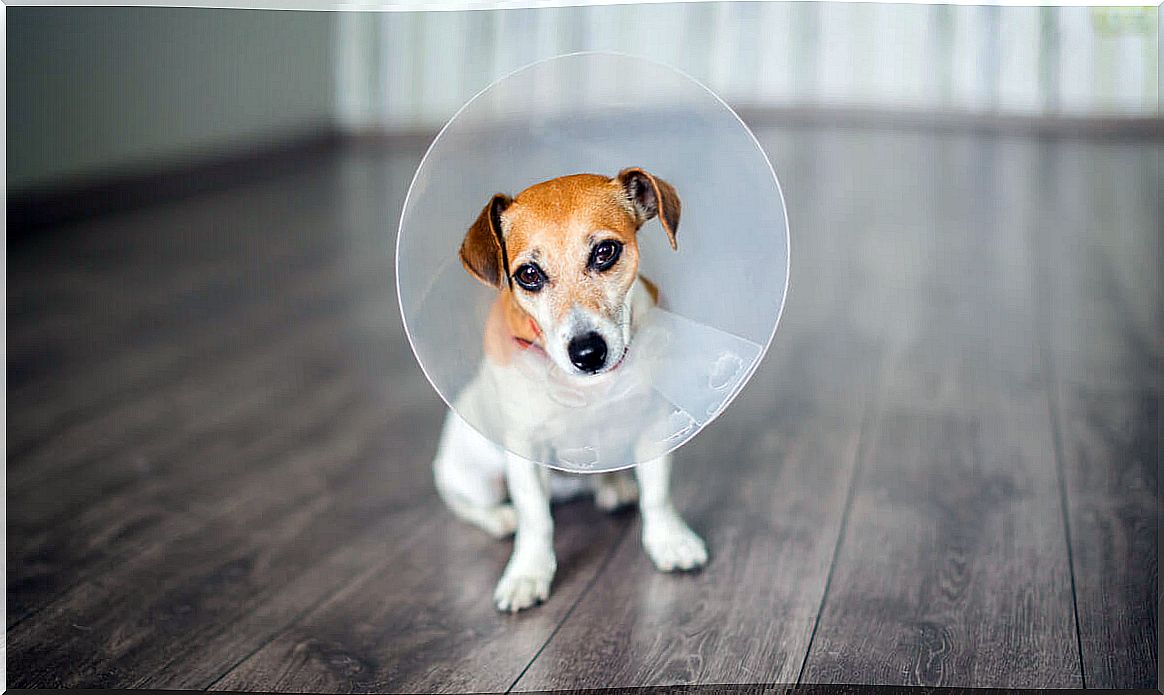
How to prevent the animal from touching the stitches?
A common behavior is for the animal to try to remove the stitches. It is noticed that he tries to scratch or lick the wound area, which is dangerous as it increases the risk of infection.
So, one aspect that concerns the guardians is how to prevent the animal from trying to remove the stitches. For this, the market offers solutions such as sprays with a bitter taste or even the use of Elizabethan necklaces (cones).
The Elizabethan necklace is named for its shape similar to the garments worn by Elizabeth I of England. This accessory prevents the animal from touching the wounds and is easy to put on and take off. In addition, if the animal needs to stay a few days with the collar, it can drink, eat and even sleep with it. Although animals do not like to use it because it reduces their mobility, avoid using sprays or other alternatives that interfere with the wound.
Water and food
While it is likely that the first night after surgery the animal will prefer not to eat, this may not be the case. If you notice that he is looking for food, he may offer a small amount. This is because your pet may not feel well and may end up vomiting. However, the veterinarian will usually indicate what steps to take with feeding, whether or not you can provide food.
Also, something that should always be within the animal’s reach is fresh, clean water. Especially if your vet recommends restricting your diet for a few days.
And exercise?
Normally, it is recommended that the animal be kept at rest for at least the first few days after the operation. It is also true that it depends on the type of operation performed. In any case, it is advisable to restrict prolonged movements, such as jumping or climbing stairs. This can be a little tricky, especially in the case of dogs that are brimming with energy.
Although it is not easy, it is the best option to prevent the animal from getting hurt. However, it is always advisable to consult a professional, who will know what are the best options for a good recovery.
What behaviors should we observe?
Sometimes, some strange behaviors can be observed after surgery. Pay special attention to the following:
- Excessive sleepiness (especially after 24 hours).
- Vomiting.
- Intense redness around the wound area.
- Bleeding in the wound area or discharge.
- Bad odor coming from the bandages covering the wound.
- Appearance of lumps or significant inflammation in the wound area.
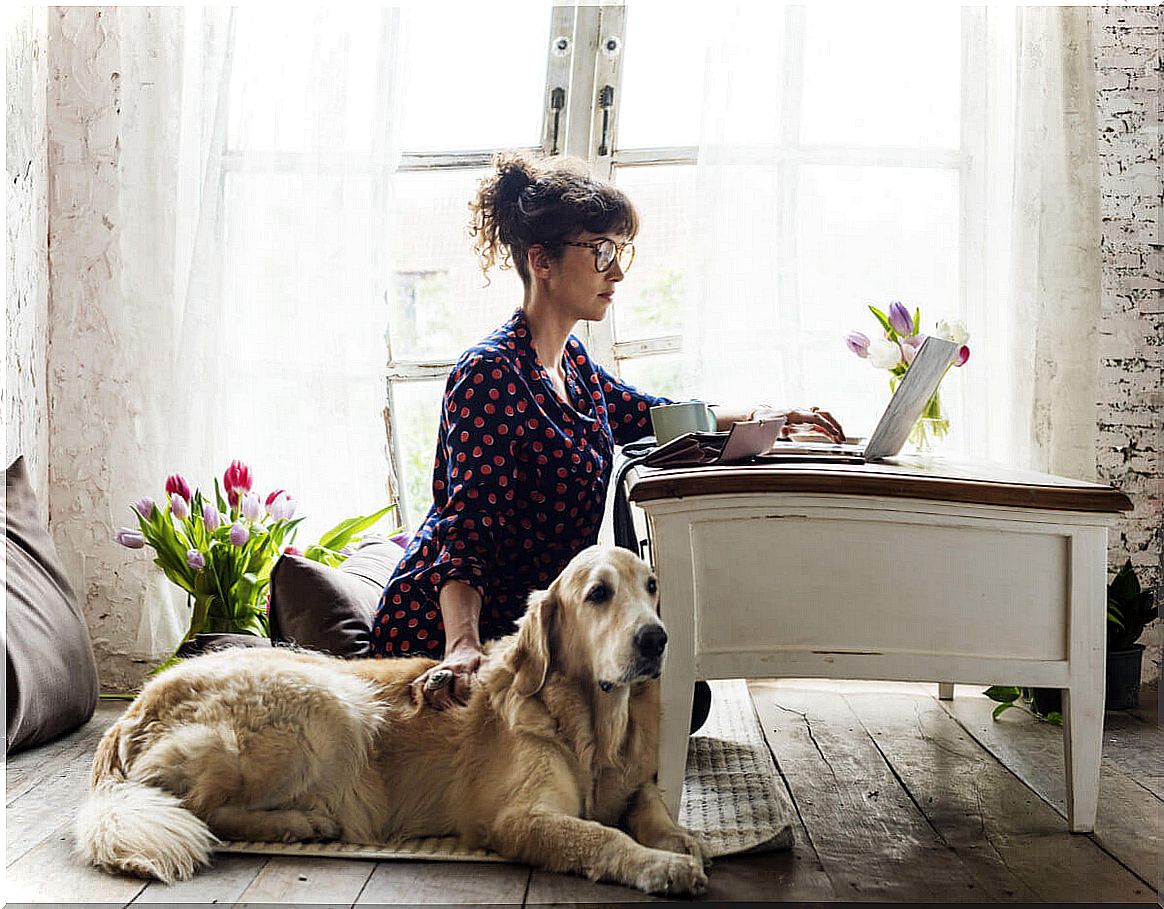
It can be concluded that the postoperative period is complicated, both for the animal and for the guardians. However, by following some of these guidelines, it is possible to perfectly care for an animal after surgery.
It is important to emphasize that these advices are only guidelines and that it is always recommended to seek specialized care. Especially in case of any doubts that may arise, the objective is always to keep the animal in the best conditions.
